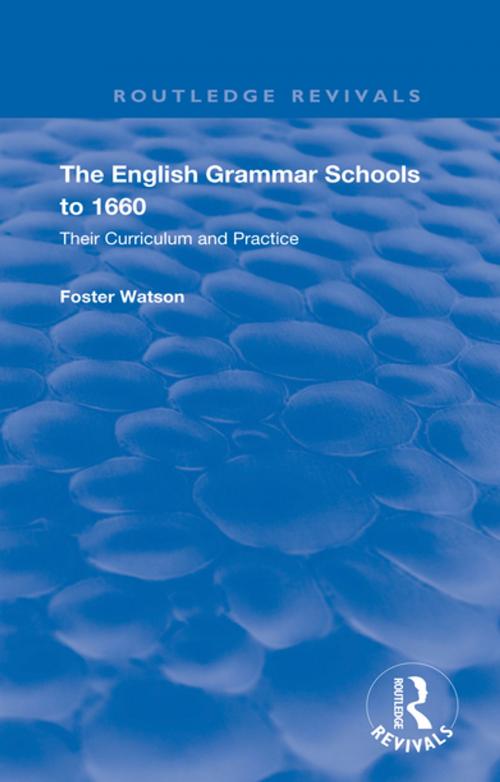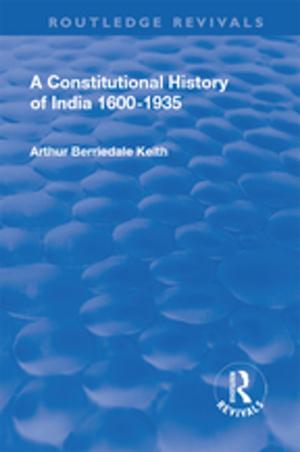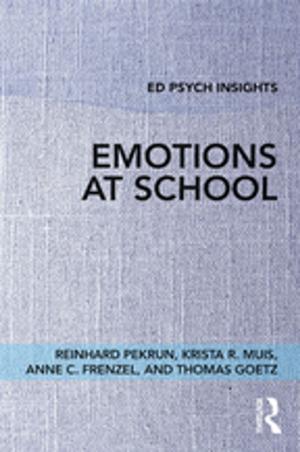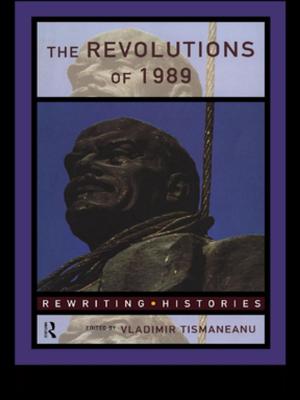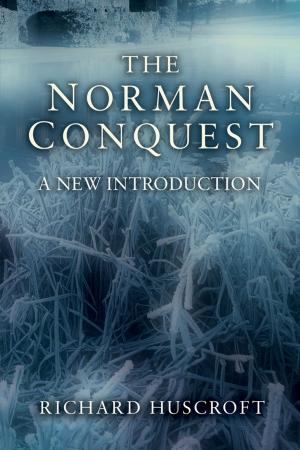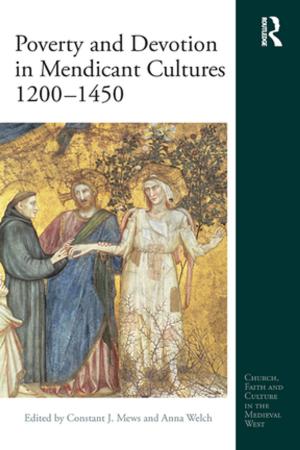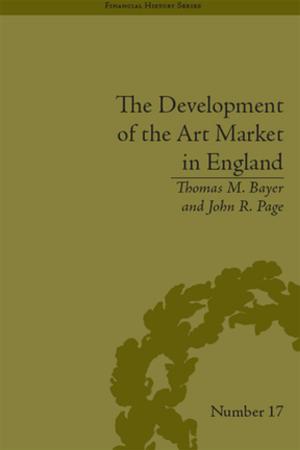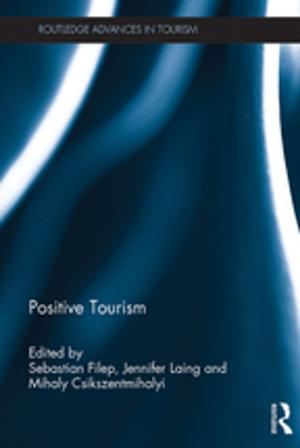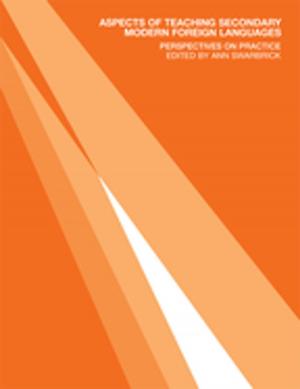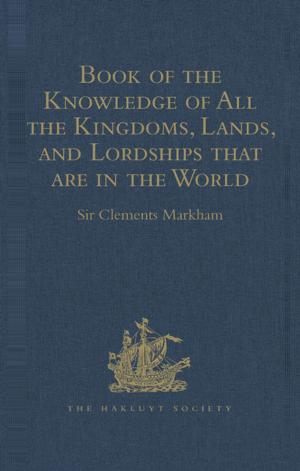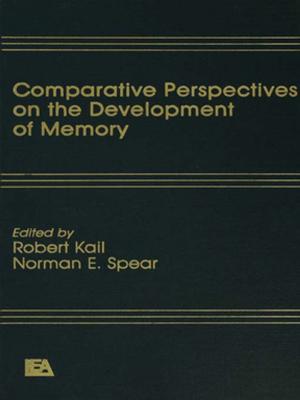The English Grammar Schools to 1660
Their Curriculum and Practice
Nonfiction, Reference & Language, Education & Teaching| Author: | Foster Watson | ISBN: | 9780429687907 |
| Publisher: | Taylor and Francis | Publication: | May 23, 2019 |
| Imprint: | Routledge | Language: | English |
| Author: | Foster Watson |
| ISBN: | 9780429687907 |
| Publisher: | Taylor and Francis |
| Publication: | May 23, 2019 |
| Imprint: | Routledge |
| Language: | English |
First published in 1908, this important work on the history of education traces the development of teaching in English Grammar Schools from the invention of printing up to 1660. It is not a history of the theories of educational reformers as to what should or should not be taught, but a history of the actual practices of the schools, of their curricula and of the differentiated subjects of instruction. The author relies heavily on the textbooks used in schools in the sixteenth and seventeenth centuries, in particular the ‘Ludus Literarius’ of John Brinsley and the ‘New Discovery of the Old Art of Teaching School’ of Charles Hoole, and makes free use of the School Statutes which state the express intention of the Founder as to what was to be taught.
The period covered is one of great significance in which the Encyclopaedia of the medieval curriculum was abandoned for the modern practice of the differentiation of school subjects. The new knowledge of the Renaissance and the introduction of critical methods and of close analysis gave students a detailed knowledge which could not be fitted into the rigid confines of the medieval Encyclopaedia, while the invention of printing enormously facilitated the increase and spreading of text books for both teachers and pupils.
First published in 1908, this important work on the history of education traces the development of teaching in English Grammar Schools from the invention of printing up to 1660. It is not a history of the theories of educational reformers as to what should or should not be taught, but a history of the actual practices of the schools, of their curricula and of the differentiated subjects of instruction. The author relies heavily on the textbooks used in schools in the sixteenth and seventeenth centuries, in particular the ‘Ludus Literarius’ of John Brinsley and the ‘New Discovery of the Old Art of Teaching School’ of Charles Hoole, and makes free use of the School Statutes which state the express intention of the Founder as to what was to be taught.
The period covered is one of great significance in which the Encyclopaedia of the medieval curriculum was abandoned for the modern practice of the differentiation of school subjects. The new knowledge of the Renaissance and the introduction of critical methods and of close analysis gave students a detailed knowledge which could not be fitted into the rigid confines of the medieval Encyclopaedia, while the invention of printing enormously facilitated the increase and spreading of text books for both teachers and pupils.
